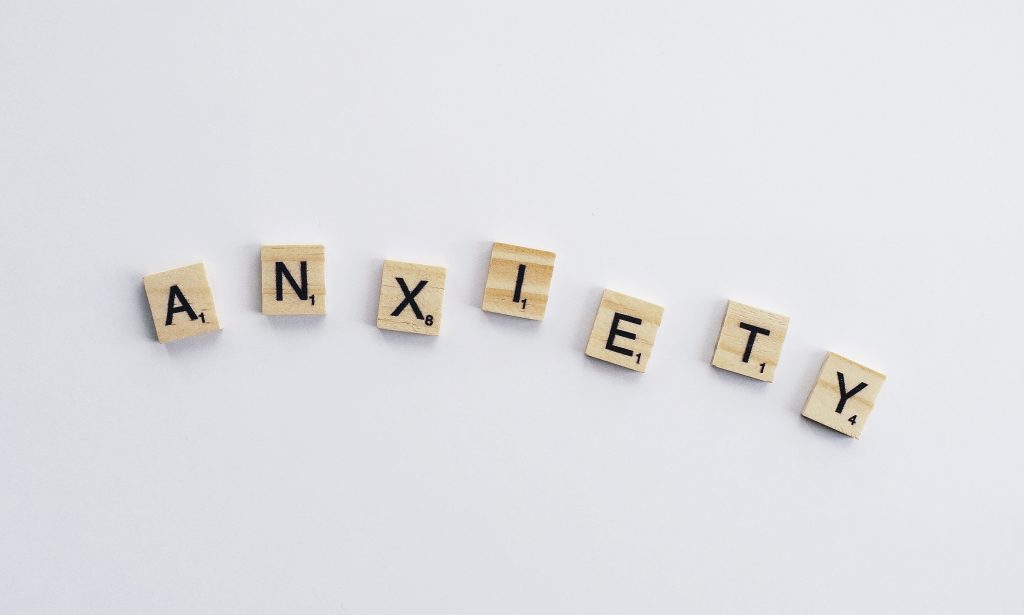
I’ve been thinking a lot about anxiety and particularly my own experiences of an anxiety disorder. At the start of Covid-19, I wrote a post specifically about re-framing anxiety relating to the current situation. As my stress levels have noticeably risen in the past few days, I’ve been thinking of how I reframe my anxiety and what techniques I use. So, I decided to put together all these ideas in one place. Some may work for you, some may not. But I do hope you find something in the ideas which can help you reframe.
1. Re-Think ‘I’m scared/worried/anxious’ to…
Can we reframe our anxiety with a different adjective? Often, although I admit not always, areas of our lives which cause us the most anxiety are times or things we care about. In the film, The Curious Case of Benjamin Button, they say : “we’re meant to lose the people we love, how else do we know how important they are to us”. Whilst this is not quite the same thing, it resonates with me. When we’re experiencing heightened levels of stress or anxiety, it may be a sign that we care about it.
To reframe, think about how you feel about the upcoming event. Acknowledge the anxiety, but what else is there? How else might we feel towards it? Usually we have mixed feelings which get drowned out when anxiety shouts loudest. For example, when I moved house my anxiety spiked and I started having panic attacks. I tried to think about what my specific fears were. I acknowledged them and then reframed then. Yes, I was anxious but I was also excited for this new phase of my life. So, think about the situation and what other emotions might be there.
If this feels like too much for you, that’s okay too. But likewise, if it’s not something you want to think about. Be curious about why. Is it a protective act of self-care? Or are we in denial? Whilst it’s hard to do, we could be better placed to acknowledge the anxiety and work with it. No matter how difficult this may be. This activity won’t eliminate your anxiety but it can help you explore the wider picture.
It will also start a process of reframing. Our brains have neuroplasticity. It evolves to incorporate more learning. It’s elastic. The more we do something, the more our brains learn to do it naturally. It’s why practice makes perfect. Repetition helps us learn to do something differently. When we re-frame our thoughts from ‘I’m scared/worried’ etc. to ‘I’m excited about’ or ‘I care about…’ over time our brains will adapt to incorporate this new way of thinking and lessen the overwhelming nature of our anxiety.
2. Beware Catastrophizing
Our brains have an in-built negativity bias. We’re biologically hardwired to notice the negatives. It’s part of our bodies ‘alarm system’ to detect threats in our environment. A product of this bias is we often fall into cognitive distortions or thinking traps. One such example is catastrophizing. We immediately jump to the worst case scenario. Usually this scenario is highly unlikely, and yet we can become obsessed with it.

To reframe the anxiety, gently question how realistic the worst case scenario is. We can consider if there is any evidence for what we’re concerned about? Or try to think how likely the scenario is? A good starting point is thinking about a similar situation and what the outcome was. Did we have the same fears then as we do now? What was the end result? Did it go as badly as we expected?
In my own experience I have found this helpful. One time I was nervous to speak to a manager about anxiety. I worried that they would doubt my professionalism or call my capability into question. So, I decided to try and reframe by questioning the validity of my fears. I thought about when I’d spoken to my manager previously. This allowed me to acknowledge that they’d always been receptive in these conversations. It helped me realise they’d not only been supportive but were positive about my work. And, therefore, one mention of being anxious was not going to undo an entire record of hard work.
This isn’t always easy. We’re asking ourselves to think logically in a scenario driven by emotion. But the above example shows that it can help reframe our anxiety. If we practise this frequently, the neuroplasticity of our brains, as mentioned above, will mean we’ll gradually start considering alternative perspectives with less effort. Over time we may start to automatically counter catastrophizing thoughts by asking ‘how likely is this?’ or ‘I don’t believe that will happen’.
If this process seems familiar. It’s similar to the model used in Cognitive Behavioural Therapy. If you are happy to do this kind of activity for yourself that’s great. But be aware of your own mental health when doing so and do reach out for professional support when needed.
3. Neurotic Anxiety/Fear vs. Wisdom Anxiety/Fear
I recently heard this idea on the Happy Place podcast by Fearne Cotton. In the episode she discussed Isolation in Lockdown with Russell Brand. He described this framework which he learnt from Dr. Mike Hart. It teaches us to use anxiety as a catalyst to change. Understanding that the discomfort anxiety causes is a form of communication.
Neurotic anxiety causes thoughts and fears proving our worry. But they don’t teach us anything helpful about ourselves or others. In comparison, wisdom anxiety shows us areas in our lives we may need to change. And may suggest that we’re not living life in line with beliefs or who we are or want to be. This can help us acknowledge self-defeating habits that we need to alter.
This is a very individualized approach. And will depend on the source of your anxiety. Personally, it helps me reframe anxiety by questioning anxious thoughts with ‘how is this serving me?’ or ‘can I do anything to change how I feel?’. My own anxiety is usually rooted in control. So, at times it’s helpful to take practical steps to exert more control. For example, planning ahead or being solution-focused. Or sharing my anxiety with someone in my support network so I have a plan if things go wrong.
Other times, there’s not much I can do. Or I’ve already done everything I can to mitigate and lessen the anxiety. In these cases, according to this framework, I’m experiencing; neurotic fear where there is nothing to learn. So, I recognize the anxiety and think about how to look after myself with some self-care to help myself relax or distract until it passes.
4. Worry Hour
This idea is to set aside a specific amount of time to give space for your worries. You can think them through and let yourself feel them. Or you can channel them by writing them down or using other artistic methods to process them. In itself, the idea isn’t to change anything or challenge your anxiety. So, allow yourself to experience them. As we know, anxiety wants to be felt.

Of course, you don’t need to set aside a full hour. I imagine that could be overwhelming or not feasible. You could set aside 5 minutes or whatever feels comfortable for you and fits your schedule. And this will be key to making the practice work. Whether we use this on a daily basis or only in times of high stress. We need to fit it into our lives otherwise we’re unlikely to do it. Think about when it would be practical. For some, perhaps before bed to unwind and empty our heads before bed. Or tie it to a daily activity as a reminder. For example, boiling the kettle for a hot drink or when we brush our teeth.
We can boundary our anxiety by giving it time to be felt and acknowledged. Particularly if it’s a pervasive feeling or we overthink. But not letting it take over our lives. When the thoughts or feelings pop up ‘outside of hours’, we can put them aside and counteract with ‘I’ll think about you later’. Knowing we have time to sort through our fears and feel them can quieten or lessen them during the rest of our day.
I’d love to hear from you about any techniques you use to reframe anxiety? Or whether you’ve had successes or practise any of these ones suggested? Let us know below!

This is a great post. I like your idea of setting aside a worry hour and then moving on. I also agree with when you said to think about how realistic our worries are. That helped me a lot after a bad car accident. It was terrifying to start driving again, but reminding myself how unlikely it was to be in another accident so soon, helped me slowly feel better about being in a car.
I’m so glad that you found these helpful. And sorry to hear about your car accident. Events that we find traumatic can make it doubly hard to try again!
This was so interesting, especially the difference between neurotic and wisdom anxiety. This made so much sense to me and has actually jolted me into reframing my own anxiety — this is so useful!
Thinking errors are especially bad for those with mental health problems, but learning to reframe your anxiety is a good way to go. Also, try graded exposure
One of my clients was a confidence coach and she always said that while we can listen to the voices in our head we don’t have to believe them. To consider what a wise or trusted friend would say to us instead. Good advice, I think, similar to reframing. 🙂
Someone once said that to me in relation to depression and it’s so true! Sometimes I can distract or ignore the thoughts but sometimes it’s not always that easy.
Thanks for sharing this. Coming from a culture that did not embrace “anxiety”, I had to hide and internalize my worries and thoughts, which made them worse. As I got older, I found ways to channel my anxiety into writing, music, and cooking.
I’m so sorry that you had to hide it. I can imagine that could make things worse. I find talking about it a massive help although it’s taken me years to open up to people. And more time to explain to them what I need from them. Channeling your anxiety is great, I’m so glad you’ve found something that helps you
Great post, sometimes anxiety eats up and make you numb. Sometimes I let myself feel certain way other times I just distract myself.
I’d never underestimate the value of distracting yourself. Sometimes I try everything and the only think that I can do is distract myself or literally turn it all off by going to sleep and hoping it will feel better in the morning
This is a great post! I think we tend to forgot about ourselves and mental health, but if there’s one thing I learned from this pandemic is that I need to focus on myself at times. I get anxiety at times, and I really like your advice in #2. I wouldn’t have known that our brain has a negative bias (which makes sense now that I think of it), and it definitely helps to think logically than to jump to the worst case scenario. Thanks for sharing! 🙂
Yes I think the negative bias is so interesting. It’s the way we’re built but most of us don’t know it!
A relative of mine has had two panic attacks since COVID hit. She normally is a pretty anxious person, but ending up in the emergency room for anxiety is something that has never happened to her before. It makes me realize just how anxiety can sneak up and get you when you least expect it.
I definitely have taken to heart the information you had in the Re-Think ‘I’m scared/worried/anxious’ to… section of this post. Right now I feel stressed about everything. My husband asked what I’m stressed about and I seriously couldn’t answer him. After reading this I’m going to take a good chunk of time and think about what it is that I’m really stressed about. Hopefully if I name my stresses I can start to figure out how to react to them differently.
Thanks for the great article! Found you on Twitter and I’ll be back!
So glad you enjoyed this and found it helpful. They’re some tried and tested methods which I’ve used many times when my anxiety peaks. And you’re 100% right it can sneak up on you when you least expect it!
Great post, thank you for sharing,
This is a very helpful blog post! Thank you for sharing.
Lauren | http://www.bournemouthgirl.com
very well written post with useful advice
I am sure some of this advice will benefit people.
https://www.wattophotos.co.uk
It was really interesting to read this article, because it’s something I’ve spent a lot of time thinking about lately. My husband and I were even talking about that second point earlier today. I definitely have a habit of jumping to the worst possible scenario on a regular basis, so it was nice to learn that 1) I’m not alone and 2) there are ways to actively combat that. Thank you for sharing this! Really helpful!
Thanks Stephanie! I’m glad you’ve found it helpful. It’s 100% something I do too and I noticed the other day I was doing it but then immediately countered the thought with some logic! It’s what made me think I should write the post!
I like the idea of a worry hour! That is a really great concept. I will have to try that
Thanks Jen! If it works for you do let us know!
Great tips! I love the idea of wisdom anxiety – that is a concept I have never heard before. I especially like that it can be used to trigger a change. Thanks for bringing this to my attention!
Thanks Clarissa! I can’t take responsibility for it but it made sense to me and my own anxiety too!
This is a great post. It is so interesting to read and learn more about anxiety. Thank you for these tips.
goalofhappiness.com
I’m so glad these were helpful. I’ve definitely found them useful in the past